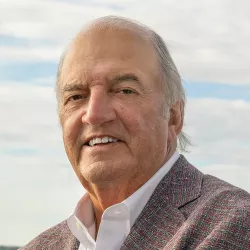
Case Overview
As an insurer for former asbestos manufacturers, including Johns-Manville, Travelers inappropriately fought against making payments to asbestos victims that were due from the Travelers insureds.
In 2004, Travelers agreed to settle claims brought by certain asbestos claimants for Travelers direct actions under state statutory provisions. Despite the settlement, Travelers fought for over 10 years to avoid its obligation to thousands of asbestos victims.
Motley Rice asbestos attorneys were integral in negotiating and reaching the original Statutory Direct Action Settlement Agreement (as well as the Hawaii Direct Action Settlement Agreement) between the asbestos claimants and Travelers in 2004, and have played a key role in the court proceedings since, which culminated in the U.S. Court of Appeals for the Second Circuit confirming in January 2015 that the settlement proceeds should be paid.
The case is Common Law Settlement Counsel, Statutory and Hawaii Direct Action Settlement v. Travelers Indemnity Co et al, 2nd U.S. Circuit Court of Appeals, Nos. 12-1094, 12-1140 and 12-1205.
Background on Travelers and Johns-Manville
For almost half a century, Johns Manville was the largest U.S. manufacturer of asbestos-containing products. When litigation began uncovering the fact that this company, along with many other asbestos product manufacturers, knew about the health consequences of asbestos exposure, the company eventually filed for bankruptcy protection and did not emerge until eight years later, under the hyphenated name Johns-Manville.
As a result, in 1982 Johns Manville became the first company to create an asbestos trust. Called the Manville Trust, this trust was funded by the company and its insurers and was designed to handle the asbestos claims against it while also limiting Johns-Manville’s asbestos liability. Travelers, by paying approximately $80 million into this trust in 1986 on behalf of Manville, maintained that it received protection from future asbestos suits against Manville and other asbestos companies that claimed Travelers’ had a shared liability.
Several years later, however, cases began to be filed against insurers of asbestos companies, claiming that Travelers had an independent duty to warn about the risks of asbestos exposure and that Travelers had engaged in unfair settlement practices in connection with the resolution of asbestos personal injury and wrongful death claims.
In an effort to avoid these claims—also known as “direct actions”—Travelers entered settlements in 2004 wherein it asked Judge Burton Lifland, the bankruptcy judge who handled the Johns Manville bankruptcy, to clarify that under the 1986 confirmation order, insurance order, and channeling injunction that Travelers was protected from any asbestos claims brought against it. Additionally, under the settlements, Travelers agreed to pay close to $450 million to settle the direct action claims.
It took more than 10 years and seven decisions from courts ranging from the federal bankruptcy court, to the federal district court, to the Second Circuit Court of Appeals, to even the U.S. Supreme Court before Travelers ultimately paid the $450 million—plus $65 million in interest—provided for under the settlements.
In 2014, the Second Circuit confirmed that as of 2009 all of the conditions of the 2004 settlement agreement had been satisfied and that whatever Travelers’ “private hopes and dreams were,” they were not supported by the language of the agreement.
In disagreeing with Travelers’ arguments that they no longer had to pay the settlements, the Second Circuit found that “. . . Travelers’ interpretation amounts to a contractual term that is incapable of ever being fulfilled . . . such an impossible condition – with no support in contractual language and clearly not intended by the parties – would have rendered the contract a nullity from its inception.”
Although Traveler’s appealed this decision and requested that the Second Circuit conduct an en banc review, the Court denied its request in early January 2015, thereby confirming the finality of the 2004 settlement.

